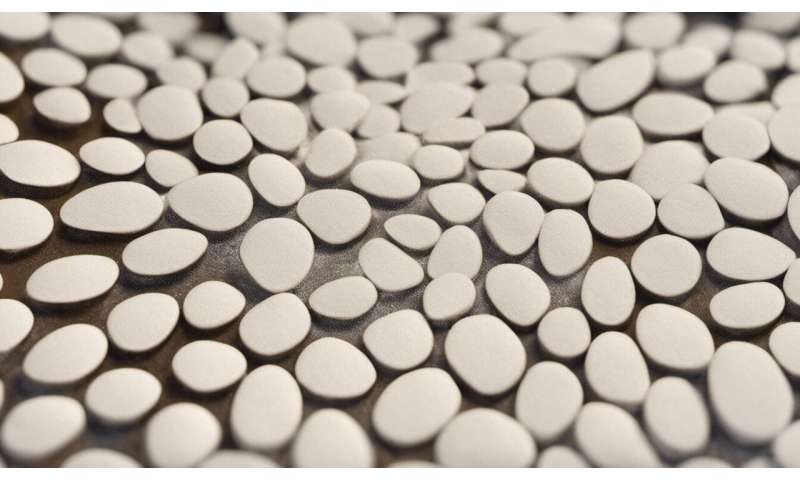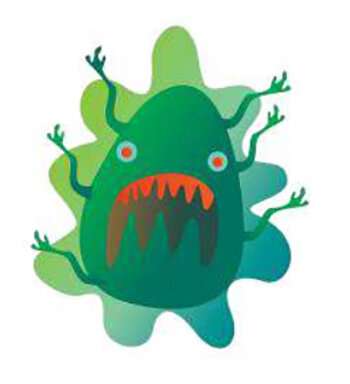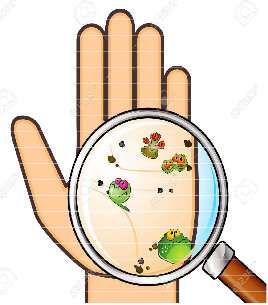Clean hands save lives, so wash up, expert says

You don’t have to remind David Levine, UC Berkeley professor of business administration, to carry hand sanitizer and wash his hands thoroughly with soap. But why do many of us—from children to adults—lack these habits, even in a pandemic? Much of Levine’s research focuses on ways to overcome barriers to improving health, especially in underprivileged nations. And as head of Hygiene Heroes, a program he’s led with UC Berkeley students on four continents since 2014, schoolchildren learn through the team’s special curriculum—it includes interactive stories, games and songs, and characters like Gerry the Germ—how to change health-related behaviors.
Berkeley News recently talked with Levine, a Berkeley alumnus who’s been on the faculty since 1987, about the importance of hand-washing, why people don’t always do it and what it will take for people and organizations to adopt healthier habits.
How did hand-washing become a focus in your work?
When I got tenure at Berkeley, I decided I should work on the most important problem I could help with. So, I chose the health of poor children in poor nations. Doctors taught me that hand-washing is the most important single behavior in preventing childhood illness, but the challenge of behavior change remained. And behavior change is something I study.
I’m currently working mostly in India. I have other behavior change projects on dental hygiene, safe water, safe cooking (to avoid smoky stoves that kill millions each year) and sexual and reproductive health. Any school can access my curriculum on hand hygiene and preventing respiratory infections; I’m glad to help run pilots or experiments.
Coronavirus has brought about death and also is a risk to businesses. I may start a small research project focused on when consumers prefer businesses with mandatory hand-washing and other signals of good hygiene. We will run some online surveys exploring what indicators of good hygiene are worth the hassle of longer lines or having to wash hands oneself. If good hygiene is profitable, it should spread more quickly.
What are the data on how hand-washing can prevent disease, and which diseases does it stop?

Hand-washing with soap prevents perhaps roughly a third of diarrheal diseases and a similar share of respiratory infections, such as colds and the flu. The proportion may be a bit lower for COVID-19, but we are not sure.
Both soap and hand sanitizer are highly effective. They key, in both cases, is to rub awhile. The standard advice is to rub for 20 seconds—about as long as it takes to hum “Happy Birthday” twice.
Elders often remind youngsters to wash their hands. Why doesn’t the habit stick? Is it a matter of not learning the right way, or not realizing why it’s important?
Leading doctors figured out it was important to wash hands with soap in the middle of the 1800s. But at the start of this century, most doctors did not wash their hands between patients. The result was that hospital-caused infections killed more people than auto accidents. Doctors’ hygiene has improved recently, but for 150 years, progress was quite slow. Germs are invisible, and each of us has a hard time thinking of ourselves as a person with contaminated hands spreading disgusting poop or snot around.
Has anything worked, to get people to change behavior and wash their hands—whether they’re surgeons or fast food workers or schoolkids in the bathroom? You’ve talked about the need to “harness shame.”
Interestingly, doctors did usually wash their hands—if they knew somebody was watching. We see the same pattern in public restrooms. Most people do not wash their hands with soap. But they do if they know someone is watching.
It’s important to establish a norm that it is disgusting not to wash hands with soap after leaving the toilet or before eating—and, more recently, not to wash hands with soap after a sneeze. (For guidance specifically on preventing the spread of COVID-19, see the CDC webpage)
https://youtube.com/watch?v=LaPToiK7L-o%3Fcolor%3Dwhite
To harness shame, managers must go beyond repeating messages to their employees about hand-washing to changing social norms. If they can convey the right messages, employees will feel disgust when they sneeze into the air or fail to wash hands with soap before eating. Effective change must build on messages about pathogens to include messages about poop and snot.
Washing your hands protects you—and the community. That is why social norms are important; we need society to use social pressure to protect itself.
What has your work promoting healthy routines in other countries shown?
Like many others, I find that providing easy access to soap or hand sanitizer is crucial. Also, like many others, I find that health messages—plus the availability of soap—is usually not enough.
Fortunately, even in resource-poor areas such as India, my team has found that adopting routines for hand-washing with soap work. When the lunch bell rings, students line up at the classroom door, and a lead student squirts a little soapy water on each student’s hands. The students scrub as they walk to sinks, rinse and then eat. Parents in our country may recognize this routine from their own children’s preschool days. Every school in America should establish similar routines.
What needs to happen to change health hygiene in the United States?
Managers in the United States must build new organizational routines related to hygiene. These will vary by the risks each business faces and must outlast the acute phase of this pandemic.

For example, hygiene is the most important near people who are sick. So, every doctor’s office should require people to wash their hands with soap or hand sanitizer as they enter.
It is important to establish routines for hygiene wherever people spend a lot of time together. So, every senior living facility should ask you to clean your hands as you enter. And places where people live together, like dorms and prisons, should establish appropriate routines for hand-washing before meals. For example, as you enter a dining area, someone can remind you to use hand sanitizer.
Good management has always involved a cycle of identifying problems and creating procedures to address them. Fighting COVID-19 requires using familiar management tools to address this novel threat.
First, businesses have to analyze where they can spread germs: an ATM keypad, a grocery cart, etc. Then, they have to create and implement procedures to keep workers and customers safe. Those new procedures require training, monitoring, incentives and often supplies. As a familiar example, the check sheets in some restaurants—”This bathroom was last cleaned by _________ at ___________ o’clock”—are part of an effective routine. Workplaces must extend that level of attention to hygiene to many other surfaces.
What opportunities does the current coronavirus pandemic present, to get people to adopt healthy or healthier hygiene habits? Are you optimistic about the chance for change?
Source: Read Full Article
